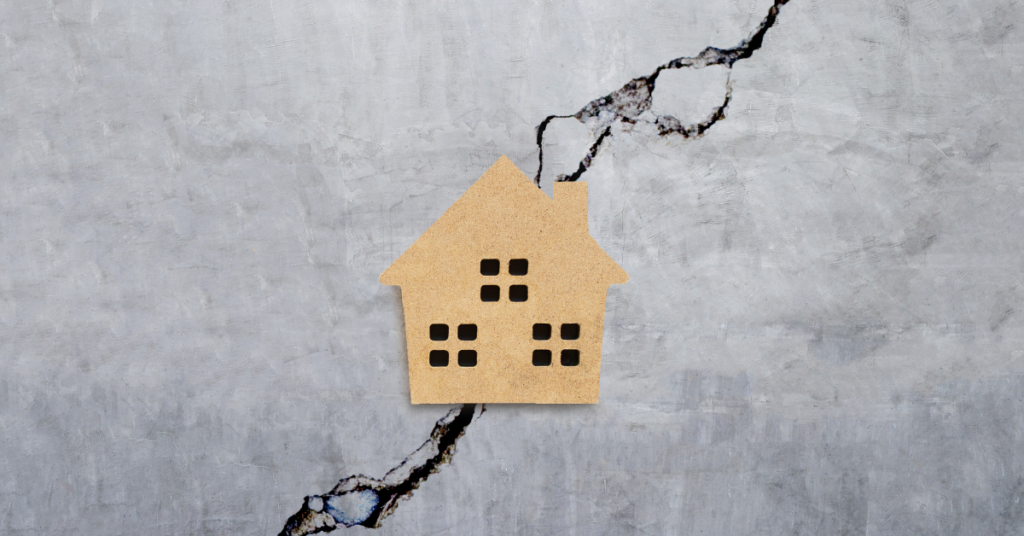8 Key Elements in a Landlord Property Insurance policy
Reading Time: 6 minutesA landlord’s rental property is their investment and therefore, they have to make sure it is protected all the time. Landlord insurance is a necessity for every property owner. It helps cover you against any financial risks involved in running a rental property business. There are many situations that may be unpredictable. Even…

A landlord’s rental property is their investment and therefore, they have to make sure it is protected all the time. Landlord insurance is a necessity for every property owner. It helps cover you against any financial risks involved in running a rental property business.
There are many situations that may be unpredictable.
Even if you have an established tenant who pays the rent on time and treats your property as their own, you still have to prepare for the worst-case scenarios where a tenant doesn’t pay their rent or worse, causes damage to the property.
There are also unexpected disasters like fires and floods and extreme weather conditions that may damage your property and possessions.
Table of Contents
Protection from all of these circumstances is what you need and a landlord’s insurance provides it to you.
What is the Landlord’s Insurance?
A Landlord’s Insurance is a policy that covers investment property owners from risks. it covers loss or damage caused by tenants, by disasters such as storms, floods, and fires, and any potential loss of rent if your property is unlivable after an insured event.
There is additional coverage you can choose from as well, depending on what you need and what type of policy you purchase.
Before signing the insurance policy, there are things to consider first.
Some landlords may tend to overlook and just sign the policy right away without reading the whole terms and conditions of the insurance policy. This may cause you trouble when you file a claim and it turns out you are not covered or did not meet your insurance requirements to get you covered.
THINGS TO REVIEW IN A LANDLORD’S INSURANCE POLICY
Inclusions and Exclusions
Knowing what is included and excluded in your policy helps you determine the set of rules and regulations you impose on your property.
You also know if you need to purchase a policy rider to cover an excluded coverage or let your tenant know to give a certain item in the property extra care.
This saves you time as well in filing claims as you will know what is covered and is not.
Some of the inclusions you have to look for are:
– Damages caused by Tenant’s Pet
Most tenants own a pet. When they do, you have to impose certain rules and agreements when it comes to a tenant moving in with a pet. While you can hold your tenant liable for any damages caused by their pet, it is still safe to ensure that your insurance covers any pet damages.
– Rent loss due to an insured event, like the tenant getting evicted by court order, tenant non-payment or death of the sole tenant
This is crucial as it is income impacting. It is important for every landlord to secure their income and when a tenant fails to pay their rent on time, it is a financial loss for you. If a tenant defaults payment, gets evicted due to a court order or death of the tenant, it becomes a big loss for you.
The landlord faces vacancy which means income loss too. If they have a rent loss due to an insured event, the insurance pays the landlord for any loss of income.
Some common exclusions include general maintenance expenses, costs of repairs in the property, loss of income due to vacancy, and general wear and tear.
Insurance Company Requirement
Before a landlord gets approved for a claim, their insurance company conducts an investigation and checks if the property passes their requirements.
The first thing that insurance companies check is the lease. Insurance claims are based on your lease agreements. The insurance company will check your lease and decide who is responsible for the claim, especially if it is a liability claim.
They may also have required routine inspection checks and maintenance. If there are damages in the property and you are not able to prove that you accomplished their required inspections and maintenance, your claim may get denied.
Coverage
These are the types of coverages you have to look for in your insurance policy. As a landlord, know what you have to prioritize and what needs protection the most.
Property Coverage
The most obvious coverage you have to look for and review properly is the coverage for the property’s structure.
If something bad happens to your rental property, it’s value decreases. It can be a total loss due to fire or a tornado or can be a partial loss like a pipe bursting causing damage to your wood floors.
These are the things you want to get coverage.
It will be hard to recover from a loss if there will be no insurance to cover you. So make sure you understand the stipulations of the Property Coverage in your policy.
Liability Coverage
This coverage is for anything bad that can happen to other people caused by you or your property.
Common examples are a person falling down the stairs, tripping on your sidewalk or injury due to faulty construction.
Your tenants are the most prone to these things. The second potential group of people that may experience injuries on your property are the friends and families of your tenants.
That is why it is also important to require your tenant to get a Renter’s Insurance Policy. The liability on a renter’s policy will be the first to respond to a claim and make you less likely to receive a liability claim.
Reviewing this coverage is vitally important.
If someone gets injured in your property and you don’t have this as part of your insurance, you are liable and will need to cover for any medical expenses. You also perform repairs at the property if necessary.
Business Income Coverage
This coverage protects you for financial losses that may occur if there are damages in your property that requires your renters to move out.
If your property becomes unlivable due to damage, your tenant may need to move out for a certain period of time so you can repair the damages.
However, because of this, you lose your income and incur more expenses due to the repair costs. If you have this type of coverage, you can file a claim to receive income while your property is vacant.
Market Value Vs Replacement Cost
The Property Coverage on your policy is the maximum limit your insurance pays you for any damage to your property.
Many landlords may think that the amount they can get is the same as the worth of the property. However, the property coverage is decided based on the replacement cost. The amount is decided based on how much it would cost to rebuild your property. Including the service providers and materials like wood, drywall, and roofing.
Sometimes the Market Cost and Replacement Cost are similar, other times they are completely different.
It is necessary to review this coverage in your insurance and understand it to avoid confusion.
Understanding the difference between your property’s market value and replacement cost can help avoid confusion.
Coinsurance Clause
This is something that landlords have to be careful with. The Coinsurance clause is a very complex and critical part of your insurance policy.
It is a policy rule that penalizes you for underinsuring your property. The most common coinsurance limit is 80% of Replacement Cost. Some landlords underinsured their property to lower their monthly premiums.
If a landlord’s property should be insured for $500,000, they tend to underinsure it at $300,000 only, because they think it is enough to cover the property and they get lower premiums every month.
Should anything happen to your property and you file a claim, if the insurance company finds out that you underinsured your property, they can penalize you and even give you a lower claim.
Make sure you prevent underinsuring your rental property. You can incur more financial loss if you get penalized because of the Coinsurance clause.
Perils Insurance
This is the type of coverage you always search for in a property insurance policy. The protection for any bad occurrences.
Policies may differ and may list down different events that they cover and do not cover.
Perils such as lightning, fire, smoke, floods, wind, hail, the weight of ice, burst pipes, snow, and many more. Review and clarify all perils that can be covered. There may be unpredictable situations that can happen and it may not be covered or even excluded.
There may be a lot of things to look for when reviewing your insurance policy. Before signing any policies, make sure you read it thoroughly and ask everything that is unclear to you. Your insurance policy is your protection against any losses.
Understanding your insurance, how it works, and how it protects your assets is the key to successfully securing your property.
Call us now and get a free consultation on Landlord’s Insurance.
Green Ocean Property Management’s Property Insurance Policy provides the protection you need for your most important asset, your property. We are a licensed insurance broker and we can help you find the best insurance that fits your needs.
Our Insurance Policy protects your property from any damage, tenant liability, bodily injuries, pet guarantee, and many more. Our insurance policy is the one-stop-shop you are looking for.
Contact us now.
Reach us at hello@greenoceanpm.com or call 617-487-4868. You may also visit our office at 268 Centre St Newton MA 02458.
Optimizing Energy Efficiency: The Magic of Heating and AC Zones
Reading Time: 3 minutesImagine a world without heating and ACs. You can’t, right? In today’s blog, we’ll dive into the world of heating and AC zones. Let’s shed light on what they are, how they work, and why they’re essential for property owners and tenants. At Green Ocean Property Management, we believe in proactive property management, and understanding…
Why Hire a Property Manager: The Key to Maximizing Your Rental Income
Reading Time: 4 minutesMaximizing rental income is a top priority for real estate investors, and one key strategy for achieving this is by hiring a property manager. A study by Buildium found that in 2022, 27% of property managers in the USA are exceeding their client’s expectations with the help of their services. In this blog, we…
What is Normal Wear and Tear on a Rental Property and How to Assess It
Reading Time: 4 minutesAs a landlord or a tenant, understanding what constitutes normal wear and tear on a rental property is important for a smooth and fair move-out process. At Green Ocean Property Management, we understand the confusion surrounding this topic. In this blog post, we will clarify normal wear and tear, distinguish it from property damage, and…








